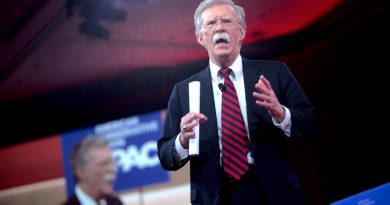Obama’s Legacy Lies in His Unprecedented Foreign Policy Achievements
By Isla Lamont
Staff Writer
President Barack Obama has less than 100 days left in office, and an entire generation is speculating what his legacy will be. Although he is known as the first African-American president, his impact on the nation goes much further than his habit of “dropping the mic,” both literally and metaphorically, on a nation wrought with change. The Oval Office has seen a lot in the past eight years: the Great Recession, the death of Osama bin Laden, the implementation of Obamacare, the Boston Marathon bombing, the emergence of ISIS, the normalization of U.S.-Cuban relations, the global migrant crisis, various racial protests, and a nuclear deal with Iran, all of which are just a few highlights.
In January 2015, New York magazine ran a story where 53 historians were invited to weigh in on Barack Obama’s legacy as the 44th Commander in Chief. The results were mostly positive although, to be fair, that may be as much due to the left-leaning nature of academia as to Obama’s actual career. I suspect many of the comments discussing his contributions argued expansion of presidential authority and use of government intervention, which has been voiced as a concern for many conservatives and democrats as of late.
To the center and right, “Obama’s primary legacy is his destruction of political idealism for the foreseeable future,” according to Samuel Moyn, a professor of history at Harvard University. “American politics could and must fundamentally change. The energies he conjured will not reappear soon.” Stephen Walt, a Harvard professor of international affairs, simplifies it as “restorative, not transformative.” Jeffrey Tulis, a professor of government studies at the University of Texas, believes that Obama’s “successes are all pragmatic supplements to prior transformations,” rather than his own dynamic constitutional vision. If you agree with these experts and not me, the true “Make America Great Again” candidate was here all along. Imagine that.
Alfred McCoy of the University of Madison-Wisconsin predicts that Obama will be best remembered as the president who oversaw one of the greatest technology shifts in all of human history. In 2009, he established the U.S. Cyber Command, which shifted the U.S. and the world’s source of power from tanks and missiles to data and cyberspace. According to Theda Skocpol, sociologist and political scientist, history is likely to uphold the reversal of the 2008 recession into a growing and sustained economic recovery. Obama said in an interview with the New York Times regarding his tax-cutting and deficit-deteriorating strategy, “Progressives don’t fully appreciate the degree to which the 2011 budget deal not only averted a potential default but actually limited the potential damage of a newly emboldened Congress.”
Obama will be remembered foremost by the American people for his domestic policies, but I believe that his foreign policy legacy will be equally impactful. For the first time in decades, the United States was led by a commander in chief whom nations trust, if only marginally. Obama is also one of only four U.S. presidents to win the Nobel Peace Prize, the last of whom was Jimmy Carter.
Time will tell that the cornerstone in Obama’s international (and economic) legacy is not fighting off Russia or China, but rather, empowering Southeast Asia. He led a hallmark tour of East and Southeast Asia late this summer, seen as a move to promote goodwill and economic stability after it was announced that he “made engagement with Southeast Asia a top priority for his foreign policy.” Most notably, he pledged $90 million in aid to Laos in an effort to clean up active bombs left from the Vietnam War, as reported by CNN.
According to the New York Times, Obama still seeks to promote economic partnership with developing Southeast Asian countries even after Congress’ failure to ratify the Trans-Pacific Partnership, which purposely did not include China. He says that the trade agreement is important because it would “level the playing field and prevent countries from turning inward.” A few months later, this prophecy is coming true as volatility seen in the Philippines under President Rodrigo Duterte worries the world. Duterte has been accused of human rights violations resulting in over 3,000 citizens dead, Al Jazeera reports. But perhaps more troublesome is Duterte’s “rebalancing of foreign policy” away from United States and into the waiting arms of Russia and China, each promising millions of dollars to the small nation. Duterte’s recent rejection of U.S. military aid in the South China Sea and southern waters will likely lead to increasing terrorist and communist contact.
Whether his domestic or foreign policies are looked upon favorably can only be seen with time. But what is sure is that for future generations, Obama will be remembered kindly, and it will be because of the strong and compassionate leadership he gave our nation.

